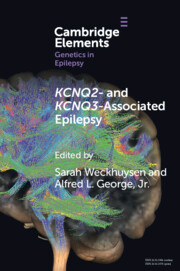Refine search
Actions for selected content:
1 results

KCNQ2- and KCNQ3-Associated Epilepsy
-
- Published online:
- 10 November 2022
- Print publication:
- 01 December 2022
-
- Element
-
- You have access
- Open access
- HTML
- Export citation
